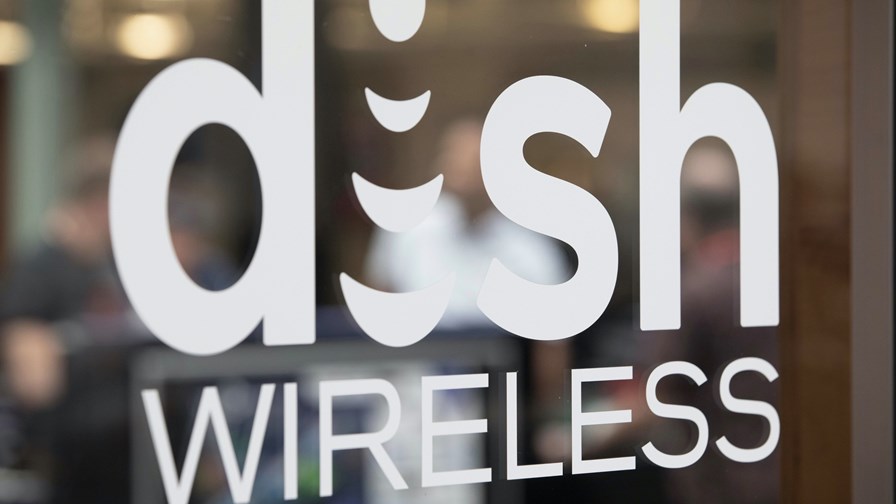
- Dish finally launches its 5G service in Las Vegas
- TIM (Telecom Italia) inches closer to a FTTH deal with Open Fiber
- Verizon lands international SD-WAN deal, takes its stadium strategy on tour
In today’s news roundup, US Open RAN pioneer Dish Wireless finally pushes the launch button on its 5G service, Telecom Italia inches closer to merging its fixed access network with that of Open Fiber, and Verizon highlights its international presence.
Multiple reports from US media, including Axios, suggest Dish Wireless has finally launched a commercial 5G service in Las Vegas for $30 per month, though the offer is somewhat limited to start and is supported by just one smartphone, the Motorola 5G Edge+. The service had been originally slated to launch last year, but getting the operator’s greenfield, Open RAN-enabled, cloud-based network up and running has proven to be a bigger challenge than expected. The operator’s 5G licence commits it to covering 20% of the US population by mid-June this year, which seems like an insurmountable task, but the operator reportedly has its infrastructure set up and ready to go in 125 cities around the US and is confident of meeting its obligation. Just this week, Dish announced Samsung as a key network technology and device partner, and noted it has been testing its 5G service with the vendor’s Galaxy S22 phone, so it seems likely that smartphone will soon be added to the service provider’s 5G roster.
Pietro Labriola, CEO at TIM (Telecom Italia), has reportedly expressed confidence that the company will soon strike an agreement to merge its fixed line assets with those of Italian wholesale fibre access network operator Open Fiber. According to a Reuters report, Labriola has said that a preliminary agreement on the merger could be just days away and that the involved stakeholders are interested in finalising the project. The merger has long been in the works, with TIM’s FiberCop access unit to be merged with Open Fiber to create a new, single wholesale national fixed broadband entity called AccessCo. The plan was backed by TIM’s board in August 2020 but got delayed as the company underwent management changes, alongside facing challenges related to the pandemic, a change in the Italian government, intense competition from the likes of Iliad, and a string of underwhelming financial reports. Matters were complicated in November 2021 when the telco received a takeover offer of €10.8 billion from Kohlberg Kravis Roberts & Co. L.P. (KKR): TIM sat on the offer while it revamped its management team, confirmed Labriola as the new CEO, and gave itself time to consider its business and ownership options (see TIM agrees to takeover talks with KKR, but keeps its options open). News that the merger with Open Fiber might be back on came as TIM reported its first quarter financials: Service revenues totalled €3.4 billion, down by 2.5% year-on-year.
Verizon has reminded the world that it’s not just a US service provider by announcing a major enterprise services deal with German media giant Bertelsmann and unveiling an “international stadium and venue strategy.” The deal with Bertelsmann sees Verizon provide an international managed SD-WAN service “underpinned by virtualized security functions” across the media company’s “operations in the Americas as well as subsidiaries across the APAC and EMEA regions.” According to Verizon, the “next generation SD-WAN network has security built into its core. Verizon Advanced SASE provides a universally distributed, identity-centric networking and security platform that ensures Bertelsmann’s end users and devices, across all locations are securely connected.” The international stadium strategy builds on Verizon’s efforts to become an international provider of private 5G networks, building on its success in the UK at the Port of Southampton in partnership with Nokia. Its most recent success has come at Old Trafford, the home of football club Manchester United, where Verizon has teamed up with Extreme Networks to deliver a ‘high-density’ Wi-Fi network to the club (but no mention of 5G at this point). For more on the Bertelsmann deal, see this announcement, and for further details on the international stadium strategy, see this press release.
Thailand-based operator Advanced Info Service (AIS) has reportedly unveiled plans to tackle the expected rise in competition from domestic rivals True and Total Access Communication (dtac), which recently joined forces to create a new telecom-tech company. The company’s CEO, Somchai Lertsutiwong, told Nikkei Asia that AIS will boost investment into network development to win over new customers. It plans to set aside around $1 billion this year, predominantly for the deployment of 5G and broadband, in addition to supporting its IT systems and R&D efforts. For more, see the newspaper’s report here.
The company touting itself as the pioneer in building the only space-based cellular broadband network designed to be accessible directly by mobile phones, AST SpaceMobile, has received the green light to test its satellite technology in the US. The Federal Communications Commission (FCC) granted the company an experimental licence which covers its BlueWalker 3 satellite using 3GPP low-band cellular frequencies and Q/V-band frequencies. AST SpaceMobile has obtained the authorisation just in time for the planned launch of BlueWalker 3 in the summer: It also plans to obtain further authorisations from the FCC to operate its low-Earth orbit (LEO) satellite constellation dubbed BlueBird. Its goal to “eliminate the connectivity gaps faced by today’s 5 billion mobile subscribers moving in and out of coverage zones” is supported by the likes of Rakuten, Vodafone and American Tower. (See A broadband satellite system built especially for mobiles.)
- The staff, TelecomTV
Email Newsletters
Sign up to receive TelecomTV's top news and videos, plus exclusive subscriber-only content direct to your inbox.




